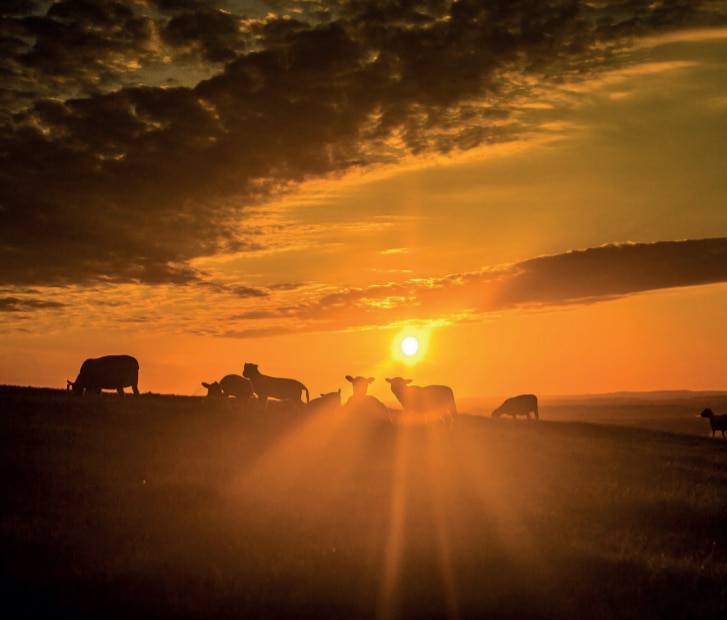Ataul Mujeeb Rashed, Missionary-in-Charge UK
In Islam, there are two main religious festivals or days of jubilations. They are called Eid-ul-Fitr and Eid-ul-Adha respectively.
Eid-ul-Fitr is celebrated at the end of a month-long practice of fasting everyday while Eid-ul-Adha is celebrated on the following day of Hajj, the pilgrimage to the house of Allah in Mecca, Saudi Arabia.
The meaning of Eid in Arabic is “something which occurs or comes again and again”. The simple reason for the adoption of this word to denote the Islamic festivals is that we always wish these joyful occasions to happen again and again.
The celebrations of Eid-ul-Adha are observed for three days starting from 10 Dhul-Hijjah, the 12th month of the Islamic lunar calendar. This festival is distinguished by the sacrifice of an animal, which is offered after the public prayer in congregation is over.
During these days, thousands of lambs, sheep, cows etc. are sacrificed by Muslims all over the world.

The person who offers the sacrifice uses only a portion of the meat, while the rest is distributed among the poor, relatives, friends and neighbours.
The ritual of sacrifice on these days is observed in commemoration of the great sacrifice made by Prophet Abrahamas, along with his wife, Hagaras (Hajirah) and son Ishmaelas some 4,000 years ago.
The story is well known that Hazrat Abrahamas, in a vision, saw himself slaughtering his son Ishmaelas. Considering it a divine commandment for the test of his devotion to God, he immediately got ready to comply with it literally.
When he was about to place the knife on the neck of his beloved son, he was told to stop and to sacrifice a lamb instead.
This historic incident marked the abolition of the savage custom of human sacrifice among the ancients. Hazrat Abrahamas through his immediate and unconditional readiness, set a glaring example of total submission to the will of God which is the distilled essence of Islam.
To imagine that the animal sacrificed is supposed to carry away the sins of the persons making the sacrifice is an entirely erroneous conception of the teachings of Islam on the subject.
The sacrifice of an animal during these days is a symbol whereby a Muslim declares their willingness and determination to kill the animal within them, to sacrifice themselves, their power and all their beloved ones in order to win the eternal pleasure of their Lord. If such a person does not put in their level best to accomplish that self-abnegation after performing their sacrifice, they are in no way different from the one who kills an animal for the purpose of food.
The Holy Quran, the holy scripture of Islam, has mentioned the significance of sacrifice in these remarkable words:
“Neither the flesh nor the blood of your sacrifices reach God, but it is your righteousness that reaches Him”. (Surah al-Hajj, Ch.22: V.38)
A true Muslim, therefore, is he who bows his neck before Allah, the Creator and Sustainer of all the worlds. And for Him, he sacrifices the she-camel of himself and throws it down on her forehead and he does not forget his own death at any moment.

